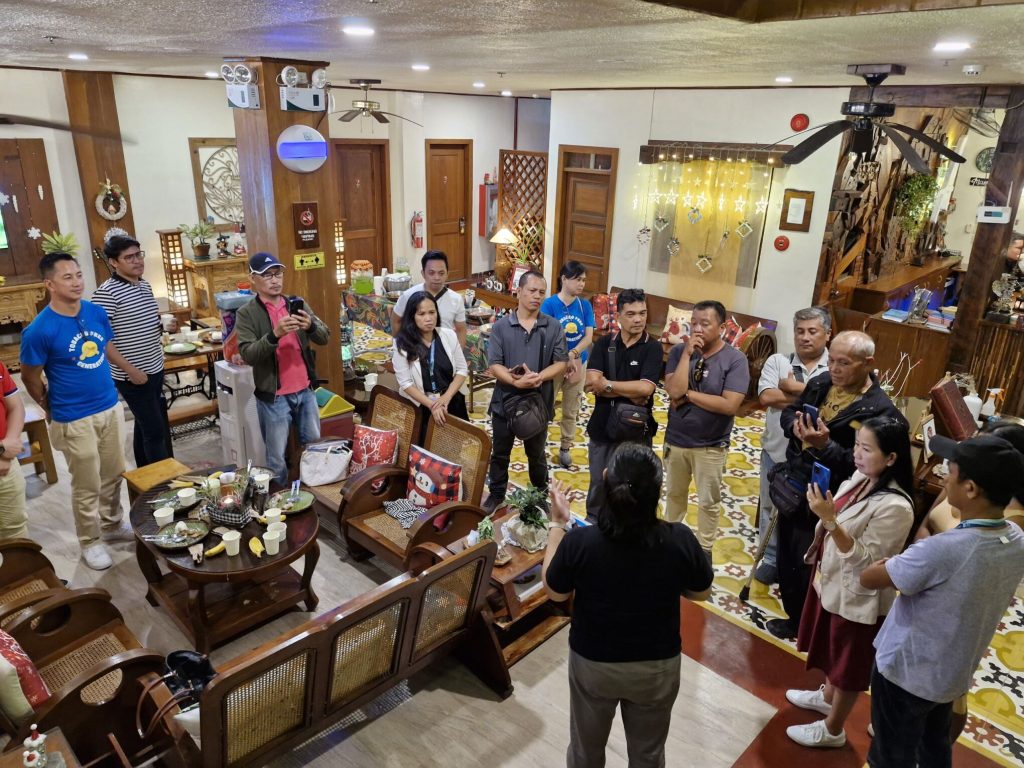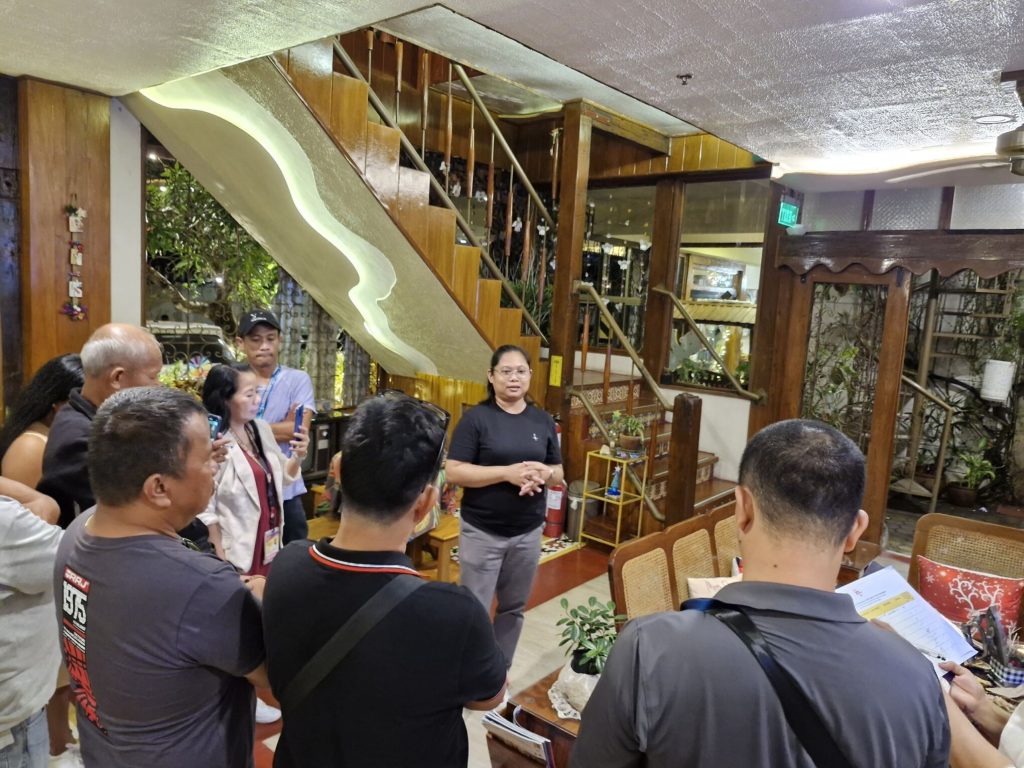Groups unite to champion passage of smoke-free policies at the local level

In a groundbreaking collaboration, the Philippine Legislators’ Committee on Population and Development (PLCPD), Child Rights Network (CRN), Health Justice, Parents Against Vape, and a host of local government units (LGUs) are spearheading the adoption of local smoke-free policies.
In a media briefing on December 5, 2023, the groups stressed that this joint endeavor is a response to the critical necessity of protecting children and youth from the dangers of secondhand smoke and them being targeted by the tobacco industry as replacement smokers through vapes and e-cigarettes.
“A collective approach at the local level is important,” said Ms. Au Quilala, Deputy Executive Director of PLCPD, from the Child Rights Network. “We need ordinances that resonate with the unique challenges faced by our communities in combating tobacco use,” she said.
This initiative gained urgency following the World Health Organization’s report that revealed that tobacco use results in over 8 million deaths annually, with a significant impact on low- and middle-income countries where the majority of the world’s tobacco users reside.
In the Philippines, the Department of Health reports that nearly 20% of Filipinos aged 15 and older are smokers, with a higher prevalence among men. The Global Youth Tobacco Survey of 2019 further indicates that 12.5% of Filipino students use tobacco products.
Local governments leading the way
The health and children’s rights advocates cited two notable examples of how LGUs should face the tobacco use problem head-on at the local level.
Baguio City, renowned as the “Summer Capital of the Philippines,” is now known as a leader in tobacco control. The city’s comprehensive anti-smoking ordinance, which has resulted in a 50% reduction in smoking prevalence, serves as a beacon for other LGUs.
Mayor Benjamin Magalong credits this success to the city’s holistic approach, which includes educational initiatives and the active participation of citizens in reporting violations. “Our journey towards becoming a smoke-free city is a testament to what can be achieved with strong policy and community involvement,” he stated.
The economic impact of Baguio City’s anti-smoking ordinance is notable. The ban on the sale of cigarettes per stick has made it harder for minors to access cigarettes, potentially reducing future healthcare costs. Furthermore, the city’s strong anti-smoking stance has enhanced its reputation as a health-conscious destination.
Meanwhile, Balanga City in the province of Bataan has also set a benchmark in comprehensive tobacco control. Known for its vision of becoming a “Smart University Town,” Balanga has integrated public health into its developmental goals. A landmark ordinance in the city restricts the sale of tobacco to individuals born after January 1, 2000, aiming to foster a tobacco-free generation.
The city’s success in reducing its smoking rate, which is lower than the national average, is attributed to its participatory approach involving educational institutions, civil society organizations, and law enforcement agencies. “Our concerted efforts in Balanga City show that with community participation and strong policies, we can make significant strides in public health,” shared the representative from Casiguran HMO.
Balanga City’s initiatives extend beyond restrictions, promoting a culture of wellness through activities like weekend road closures for physical activities and regular “Hataw” dance exercise sessions. These programs have not only improved the health of residents but have also attracted tourists interested in the city’s innovative health programs.
The efforts of Baguio and Balanga City reflect a growing movement across the Philippines since the issuance of Executive Order No. 26, which established smoke-free environments in public and enclosed places, 86 cities and towns have passed their respective Smoke-Free ordinances, according to the Department of Interior and Local Government.
“These ordinances are vital steps in strengthening tobacco control at the local level and protecting constituents from tobacco’s harms. However, more is needed to be done. With united, concerted effort, we believe that we can have 100% of our LGUs adopting similar measures,” said Atty. Ron Perez of Parents Against Vape.
What local policies should look like
In the wake of the snowballing passage of local smoke-free environment ordinances, HealthJustice Philippines has developed a comprehensive template for local smoke-free ordinances.
“This template is more than a policy document; it’s a strategic tool enabling LGUs to combat tobacco use in their communities effectively,” explained Atty. Ben Nisperos of Health Justice.
The proposed legislation encompasses several key components:
- A comprehensive ban on smoking, vaping, and tobacco products in enclosed or partially enclosed public spaces, workplaces, and public transport.
- Stringent restrictions on minors, including prohibitions on possession, use, sale, distribution, and purchase of tobacco products.
- A ban on the manufacturing, importing, distributing, and selling of unregistered or adulterated electronic cigarettes and their components.
- Regulations restrict tobacco product sales outside their original packaging or in quantities less than 20 sticks.
- Limits on vapor products containing high nicotine levels and flavored electronic cigarettes, except for menthol and tobacco flavors.
The template also outlined responsibilities for individuals in charge of public spaces. These include mandatory signage displaying smoking prohibitions and reporting obligations to the Smoke/Vape-Free Task Force for any violations. The ordinance specifies tiered penalties for non-compliance, ranging from fines to imprisonment, depending on the severity and frequency of offenses.
“We call on all local executives: children’s rights advocates and health experts from our ranks are ready and willing to help you craft comprehensive smoke-free environment legislation. We are just one call away and will help explain why this is a just, urgent, and noble cause,” Ms. Quilala noted.
Campaigning at the national level
Corollary to the local efforts, a comprehensive Smoke-Free Environment Bill, introduced by Kalinga Party-list Representative Irene Gay F. Saulog, is also pending before the House of Representatives.
House Bill 5315 seeks to unify and strengthen tobacco control measures across the Philippines. The bill aims to create a standardized approach to smoking bans in public places, allowing LGUs to tailor these measures to their local contexts and needs.
“At the forefront of this bill is our unwavering commitment to safeguard public health,” said Atty. Nisperos. “Eliminating indoor smoking areas, ensuring sustainable funding for tobacco control at local levels, and establishing LGUs Smoke-Free Task Forces are critical steps in realizing our vision of a smoke-free Philippines,” he added.
The bill also incentivizes LGUs to implement these measures effectively by integrating smoke-free criteria into prestigious awards such as the Red Orchid Awards and the Seal of Good Local Governance.
Additionally, HB 5315 proposes updated penalties for violations in line with the current public health landscape, encouraging compliance and supporting efforts to reduce tobacco use.
“As we forge ahead in our journey towards the smoke-free Philippines, let us remember that every step, every ordinance, and every piece of legislation brings us closer to our goal of a healthier nation for all,” said Ms. Quilala. “This collective effort is a testament to our shared commitment to public health and the well-being of our future generations. Let’s act comprehensively – push for national, as well as local legislation, together,” she ended.



